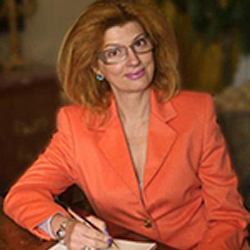From the late 1960’s Buffett was frustrated in his search for shares at reasonable prices; he likened himself to a sex-starved man on a desert island.
He did manage to buy a few between 1970 and 1973 for Berkshire Hathaway, but the immediate results were not encouraging as he witnessed the portfolio value falling: “We had significant unrealized depreciation—over $12 million—in our common stock holdings at year-end” (Warren Buffett’s 1973 Letter to shareholders).
This might have been a discouragement to Buffett at the time, but it will forever be an encouragement to those of us who experience long periods when Mr. Market won’t get on with revaluing what we think of as underpriced. Regardless, we stick to our principles; value will out in the end.
Here is what Buffett told his BH shareholders in early 1974 following the portfolio mark-down to significantly below what he paid: “Nevertheless, we believe that our common stock portfolio at cost represents good value in terms of intrinsic business worth. In spite of the large unrealized loss at year-end, we would expect satisfactory results from the portfolio over the longer term.” (1973 Letter). Clearly he was not taking Mr Market’s price as his benchmark for value.
He must have felt things were going a little slow. Newspapers didn’t even bother to quote Berkshire’s share price, despite it changing hands at over $80 in by mid-1973, up from $40 in 1970.
Even without the share portfolio shooting the lights out (yet), Buffett was content because he was able to report some good business results. In both 1972 and 1973 operating profits were over $11m. The insurance and reinsurance businesses were having “exceptionally fine” years on underwriting, providing not just zero-cost float but underwriting profits in abundance. The Rockford Bank was adding record year to record year. Even textiles were producing profits “commensurate with our capital investment” (1973 Letter).
On top of which, the overall investment portfolio, mostly in bonds, produced $6.8m in income in 1972 alone. Book value per share rose from $19.46 per share at the end of 1964 to over $70 in 1973.
Despite the business success, hardly anyone turned up to the annual general meeting of the company. Two that did make the journey were brothers Conrad and Edwin Taff. Conrad had been in Graham’s class with Warren. At least these three could keep the conversation going; they would spend hours discussing investment matters, starting a tradition of day-long questions and answers that continues – the main difference being that 40,000 attend these days.
Nifty-Fifty
Buffett was finding it difficult……….To read the rest of this article, and more like it, subscribe to my premium newsletter Deep Value Shares – click here http://newsletters.advfn.com/deepvalueshares/subscribe-1


 Hot Features
Hot Features












